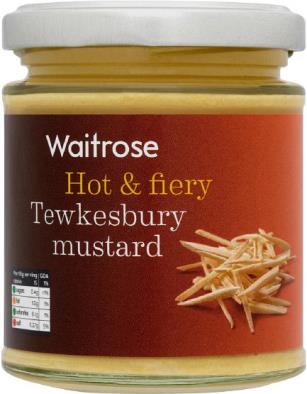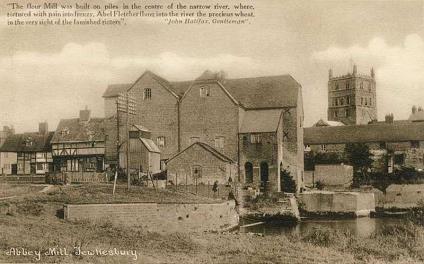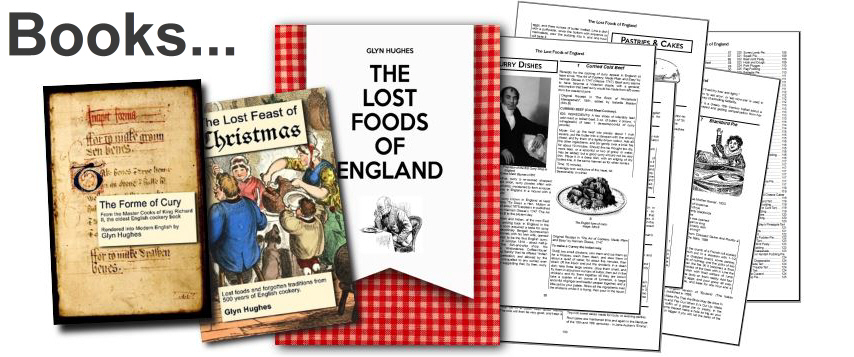

|
 Very strong mustard with grated horseradish.  Tewkesbury Mustard was formerly formed in small balls, dried to be reconstituted as needed, a version of the the balls is still produced occasionally, but most commercial TM is now supplied as a paste.  The Abbey Mill at Tewkesbury Image: http://www.oldukphotos.com James Bennett’s ‘The History of Tewkesbury‘ of 1830 relays that; “Grose says, the Tewkesbury mustard was extremely hot, biting and poignant; and therefore, by this proverb, supposed to communicate those qualities to persons fed with it.—And in an allegorical account of mustard, (Cens. Lit. vn. 288,) is this saying, “If he be of the right stamp, and a true Tewkesbury man, he is a choleric gentleman, and will bear no coals.” Fuller, in his ‘Worthies of England‘, speaking of mustard, says, “The best in England (to take no larger compass) is made at Tewkesbury. It is very wholesome for the clearing of the head, moderately taken; and I believe very few have ever surfeited thereof. It is generally used in England; and the jest is well known, of two serving-men contending about superiority: ‘My master,’ saith the one, ‘spends more in mustard than thine does in beef.’ Whereunto the other returned, ‘The more saucy men his followers.’ Shakespeare, in his play of King Henry the Fourth, puts into the mouth of the merry Falstaff, in his reply to a person who had extolled Poins for a wit: “he a good wit? hang him, baboon! his wit is as thick as Tewkesbury mustard.”* The manufactory has long ceased to be carried on in the town, though nothing could be more easy than to restore it; as the mustard, which grows spontaneously in the corn-fields, and other places, in the neighbourhood, and which is in fact here a common weed, is of the same species as that which is cultivated with so much care, in the north of England, for the sake of its flour.” The 17th Century traveller Peter Mundy, was less impressed, saying of Tewkesbury Mustard that “a Farthing worth of the ordinary sort will give better content in my opinion” A report in the Cheltenham Chronicle – Saturday 21 November 1908 – suggests that the mustard was formerly prepared at the Abbey Mill, one of Tewkesbury’s few remaining monastic buildings. See: Horseradish  |
|
MORE FROM Foods of England... Cookbooks ● Diary ● Index ● Magic Menu ● Random ● Really English? ● Timeline ● Donate ● Royalty ● English Service ● Food Map of England ● Lost Foods ● Accompaniments ● Biscuits ● Breads ● Cakes and Scones ● Cheeses ● Classic Meals ● Curry Dishes ● Dairy ● Drinks ● Egg Dishes ● Fish ● Fruit ● Fruits & Vegetables ● Game & Offal ● Meat & Meat Dishes ● Pastries and Pies ● Pot Meals ● Poultry ● Preserves & Jams ● Puddings & Sweets ● Sauces and Spicery ● Sausages ● Scones ● Soups ● Sweets and Toffee ● About ... ● Bookshop ● Email: [email protected] COPYRIGHT and ALL RIGHTS RESERVED: © Glyn Hughes 2022 BUILT WITH WHIMBERRY |